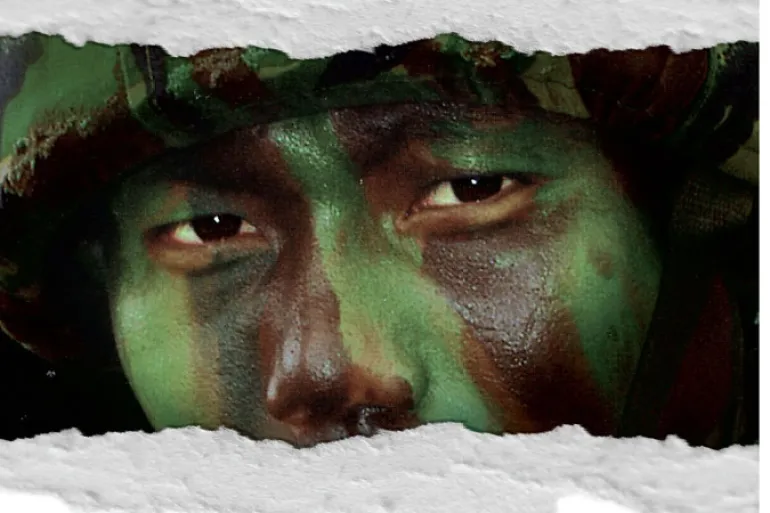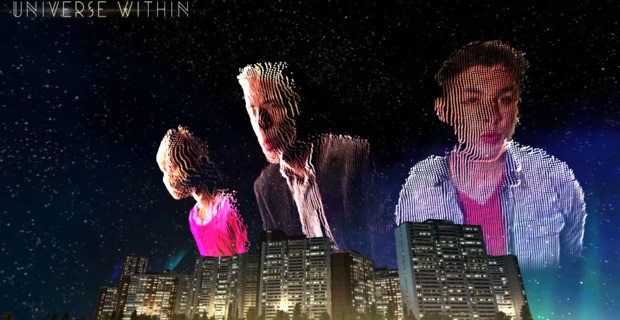- Title: Priya’s Shakti
- Genre: Multi-Media: Comic book with augmented reality, street art, social media
- Producer: Rattapallax Inc-Ram Devineni
- Budget: USD 250,000
- Developed at: Crossover Labs and Dok Leipzig Net lab
- Funded by: Tribeca New Media fund, Ford foundation
Rape and gender-based violence are some of the most distressing issues facing modern India. Every day there are reports of violent rapes, in villages and India’s biggest cities, of three years olds and 80-year-olds, crimes that take place in homes, taxis and buses . Violence against women is cutting across caste, class, age and location.
New York-based Ram Devineni, the producer of Priya’s Shakti, was in New Delhi on December 2012, taking part in one of the protest marches against the much-publicized brutal gang rape of a young girl that had taken place in a bus. He happened to speak to one of the policemen, who told him casually that the rape was obviously the fault of the girl, for being out of the house in the evening. This attitude -of first and foremost blaming the victim of the crime- was the issue that Ram wanted to explore more.
Priya’s Shakti is a social impact multi-media project that has an augmented reality (AR) comic book, street art and social media pages. It is a project that aims to create an alternative attitude towards violence against women. By tying up with NGOs who work with rape victims, the filmmakers have a long-term plan to distribute millions of copies of the comic book, to raise awareness against this issue.

I have been following interactive documentaries and transmedia projects for a while now, and I find it interesting how different people incorporate interactivity in their projects. Coming from a documentary filmmaking background, I used to expect projects to reflect tons of research and filmmakers to work on the access of key characters and deal with footage issues. But as I am learning quickly, none of these are necessary and the transmedia world is large enough to incorporate different forms of storytelling.
As Ram mentions in his interview- the three holy grails of creating an interactive project are to create an app, a documentary or a website that allows considerable viewer participation. Priya’s Shakti has none of the three.
Central to the project is a simplistic fictional comic book story, which has Hindu Gods coming to the rescue of Priya, a young rape victim. But what makes this project unique are the ancillary aspects. It is created as a multi-platform media project that uses augmented reality, a technology more commonly used in advertising and by big corporates, to open the discussion on a social issue.
If you are checking out the project, do download the free app Blippar at the beginning on your smartphone. Then point your phone to the selected images in the comic book, and you will experience another dimension of the book. You can hear animated voices of Indian women who have survived sexual assault and faced the trauma of being social outcasts. You can click your own picture against the image of Priya and a tiger (a metaphor for a rape victim ready to avenge her attackers), and post it on Facebook, and join the campaign of “I stand by Priya!”. If you are in Mumbai, you can check out the AR–enabled street art that has been made in Dharavi.
I had a conversation with Ram in Mumbai just before the launch of the comic book, to find out more about his journey in the making of Priya’s Shakti. Ram has been working as a bank technologist with Citibank for the last fifteen years. But documentaries and films are where his heart lies and the birth of Priya’s Shakti coincided with him getting the pink slip from Citibank.
Can you take us through the journey of how you went about developing your initial idea?
I have always been interested in religious studies and in Hinduism. I went on a journey traveling across South East Asia and India, exploring different temples, and observing what different deities meant to people. I also read many Amar Chitra Kathas (extremely popular comic book series in India that has stories about Indian mythology). I just had this idea that I wanted to do a story on gender violence in India but had no idea in what form. I created a short film cut from old Bollywood films from the 1970s, basically a way to tell a story about this issue, using Indian mythological characters. So there were all these abstract thoughts in my head.
In talks with Ram Devineni
Why did you choose to make a comic book for this project over other media forms?
In October 2013 I got a notice from Citibank with a severance package. I decided to use the money as an initial development fund for my creative pursuits. I went with my short film for my first meet up in NY and in this very first event, I met Dan Goldman who writes graphic novels and comics. Dan saw the cut from the 19070s films and recommended that I make this into a comic book. (Dan Goldman is the visual artist for Priya’s Shakti.)
What were the steps you took to get initial funding?
Well, the first funding did come from the severance pay! But in March 2014, Citi called me back again. So I went back to the bank, but on far more flexible hours.
I went to Doc Leipzig and Cross Over Labs, with literally just a PDF and a cover, and from there on the project slowly took its current form. The people at Cross Over Labs were full of questions for my project and I was happy that my project was of interest to commissioners and developers from round the world. I attended most of the documentary markets in the summer of 2014–Sheffield, Pixel Labs and we got funding and grants from Tribeca New Media fund and then many other organizations.
What was the inspiration for incorporating augmented reality?
During my travels to Italy, I was impressed with the artwork and frescoes of the 16th-century Sistine Chapel. I remember thinking at that time when I was looking up at the ceiling and seeing the Last Judgment by Michelangelo that I wish there was a way in which I could capture the scene on my cell phone and see the artwork in an enhanced manner. That was the trigger, and hence in my comic book, I have created scenes that use augmented reality, to give another dimension to the basic artwork.
How exactly does augmented reality work?
Augmented reality is simply an alternative or unreal view of the real world created by the software. I incorporated a specific QR code in many of the images that I created in my comic book and street art ( a QR code is like a bar code). This code is then scanned and put in the Blippar software, and that’s pretty much it! You can see one image with your naked eyes, but scan the same image with your phone, using the app, and you will see another dimension to the image!
And why did you choose Blippar over other AR software?
Blippar was entering India, and they have just launched India offices. They wanted to do something in the social sector, and my project fit in perfectly with their larger plans. They were perfect partners!
What kind of impact do you expect this project to make?
I am not expecting this comic book to reach out to the tens of thousands all across India who face gender-based discrimination. But I am hoping to start a conversation, to raise awareness about an issue that is one of the biggest issues facing Indian society these days. By tying up with NGOs who work directly with rape victims, the message could spread far and wide.
———
The comic book Priya’s Shakti can be downloaded free of cost from the website.




